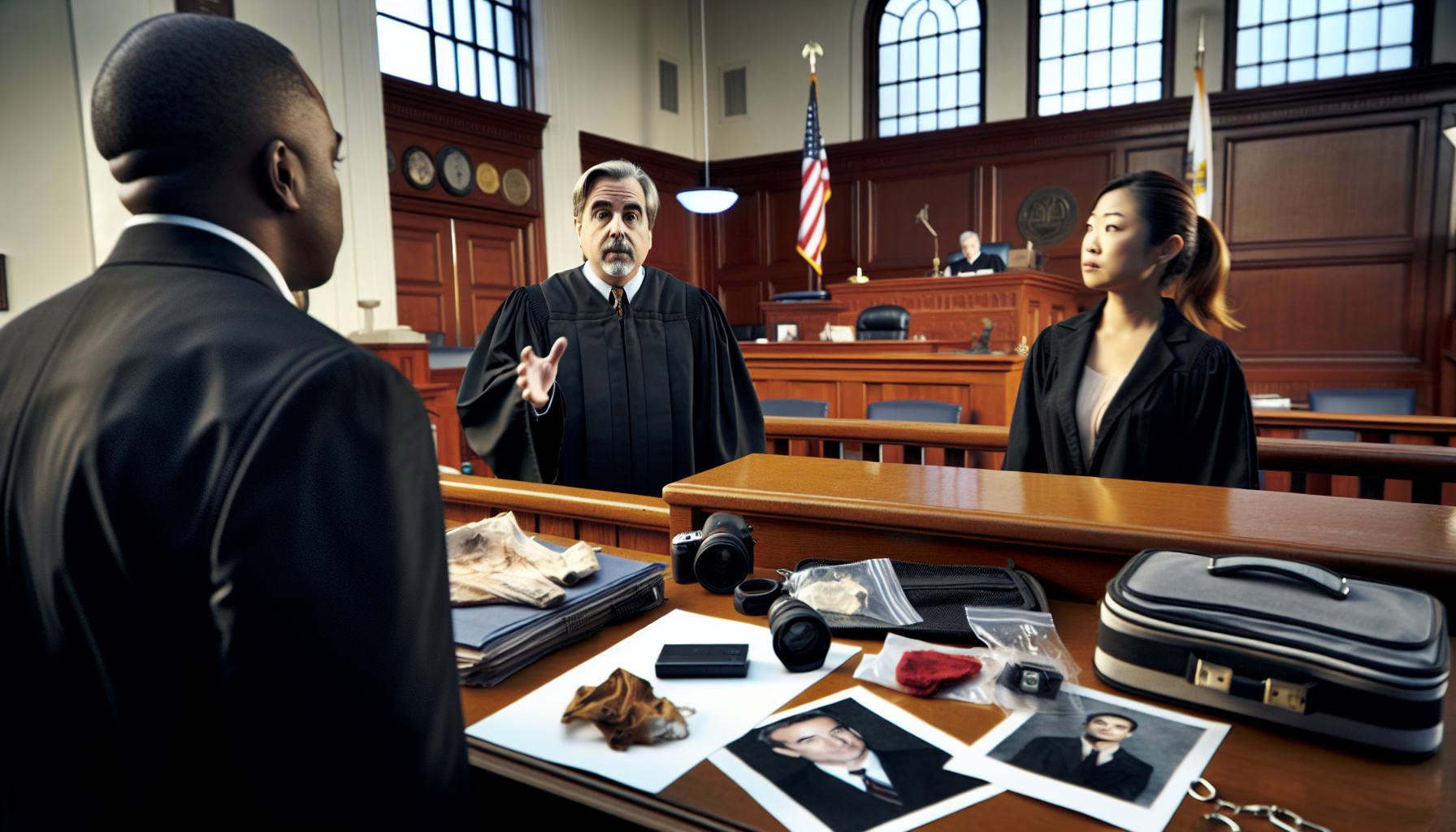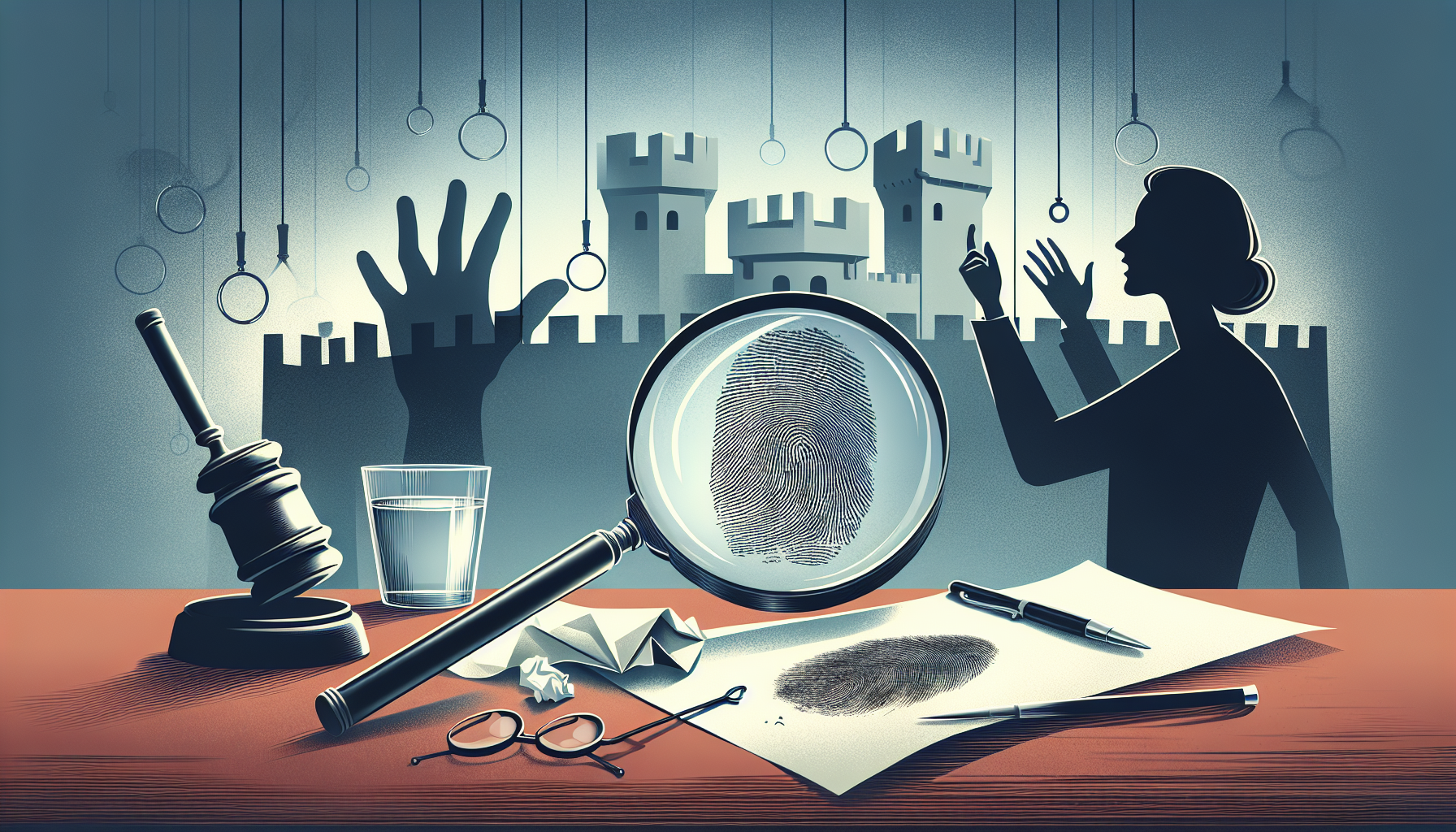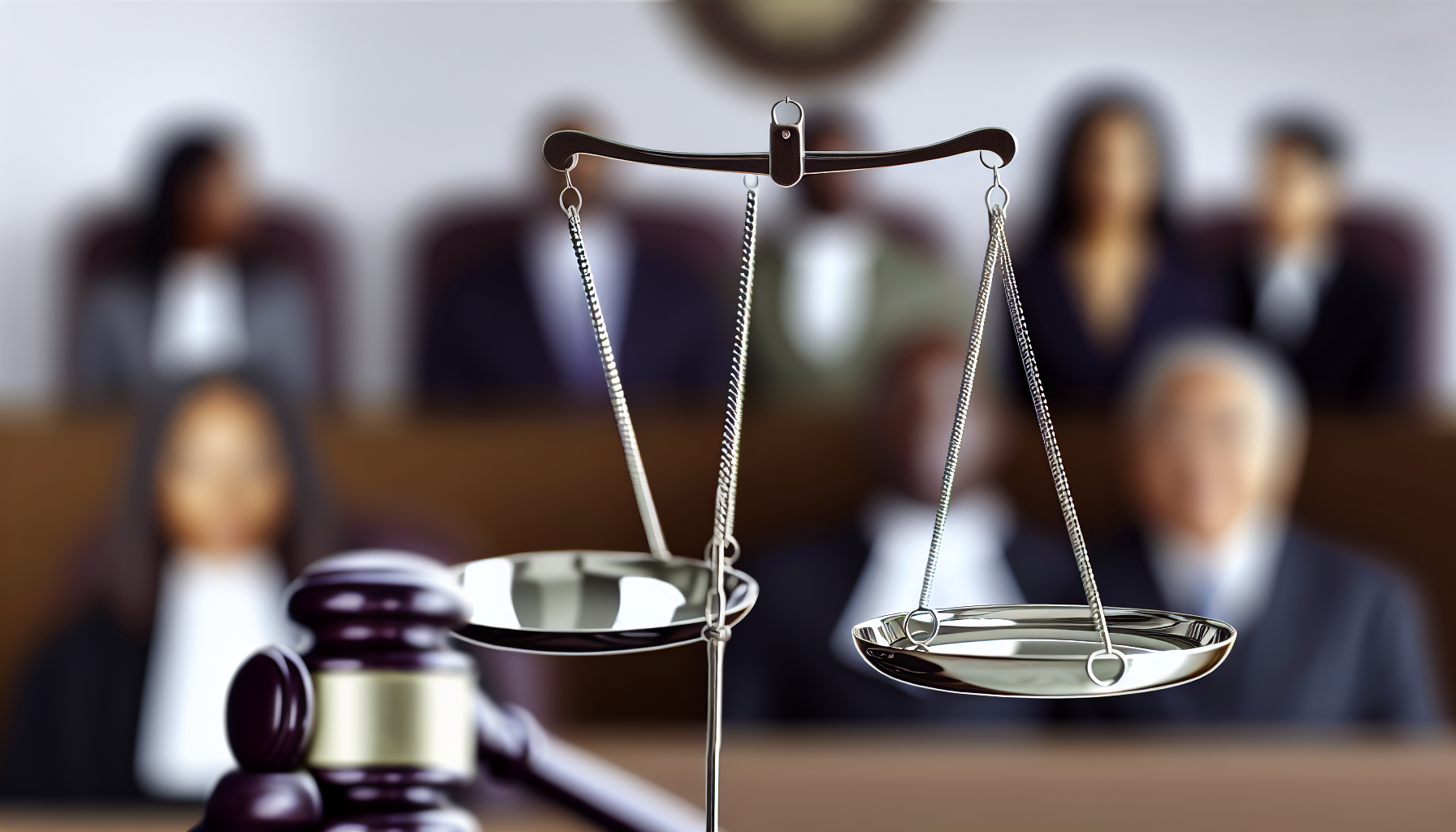Imagine waking up one morning to find yourself on the wrong side of the law, accused of a crime you didn’t commit. A crime as serious as being falsely accused of sexual assault. A nightmare, right? But for some, this is reality. False accusations, while not the majority, are a significant concern, especially when one is accused of sexual assault. Navigating this tricky terrain demands a thorough understanding of the complexities involved and the guidance of an experienced criminal defense attorney like William Palmer.
Key Takeaways
- False sexual assault accusations are complex and can arise from both deliberate and non-deliberate deception, with motivations ranging from revenge to mental health issues.
- Legal representation is critical when falsely accused of sexual assault, as hiring an experienced criminal defense lawyer can help navigate the legal system and protect the accused’s rights.
- The impact of false sexual assault accusations extends beyond individual consequences, affecting societal perceptions of sexual assault claims and potentially hindering justice for actual victims.
Understanding False Sexual Assault Accusations

Different situations can cause false sexual assault allegations, ranging from deliberate to non-deliberate deception. A false accusation of rape occurs when someone falsely claims that a rape has occurred, which can include situations where consensual contact is misrepresented as assault or when the accuser has malicious intent. Studies indicate varying prevalence rates, with reports suggesting around 5.9% of accusations may be demonstrably false, and the average proportion designated as false by police in Europe standing at approximately 4%. Such statistics underscore the need for comprehension of false accusation intricacies for effective navigation through the criminal justice system.
The individuals who make false rape allegations may have observed characteristics like youth, vulnerability, and potential mental health difficulties. False accusations of sexual assault are typically classified into two categories: deliberate deception and non-deliberate deception. Deliberate deception involves consciously dishonest actions, while non-deliberate deception can involve the creation of ‘false memories’ of rape and sexual assault. This classification shows the complex relationship between false accusations and the perspectives of criminal law enforcement.
Deliberate Deception
Deliberate deception in the context of false sexual assault accusations is the intentional act of making unfounded claims of sexual assault against someone, often for nefarious reasons such as revenge or personal gain. Various motivations, such as revenge, personal gain, or a disturbed mental state, often drive this form of deception. According to research, the motives for false allegations of sexual assault can be divided into eight categories:
- Material gain
- Alibi
- Revenge
- Sympathy
- Attention
- Disturbed mental state
- Relabeling
- Regret
However, there are other motivations for intentionally making false sexual assault accusations, such as:
- avoiding trouble
- providing an alibi
- seeking emotional gain like attention or sympathy
- concealing other behaviors like adultery
Non-Deliberate Deception
On the other hand, non-deliberate deception in the context of false reporting of sexual assault occurs when individuals make untrue claims of sexual assault without the intention to deceive. This could result from misunderstandings, memory lapses, or even misinterpretations. These individuals genuinely believe they have been sexually assaulted, but evidence or conflicting information may challenge their false allegation.
False memories play a significant role in unintentional deception. Individuals form inaccurate recollections of events, leading them to believe they were sexually assaulted. Misidentification can also lead to serious consequences. Victims may incorrectly identify someone as their assailant due to stress, trauma, or suggestive cues, inadvertently leading to false accusations against an innocent person.
Steps to Take When Falsely Accused of Sexual Assault
Taking prompt and suitable actions is vital when facing false accusations of sexual assault. One of the most important steps is retaining an experienced criminal defense lawyer. These professionals are instrumental in effectively navigating the legal system, constructing a robust defense, and safeguarding your rights. This is particularly advisable for serious misdemeanors and felonies, as the potential repercussions of such charges can be significant.
When selecting legal representation, you have two options: a public defender or a private criminal defense lawyer. The decision between the two is typically influenced by financial circumstances or personal preference, as both are qualified lawyers capable of representing you in court. Regardless of your choice, legal representation is of utmost importance when dealing with sexual assault charges, as a conviction can result in severe consequences such as substantial fines, a permanent criminal record, or imprisonment.
Hiring an Experienced Criminal Defense Lawyer
The expertise of an experienced criminal defense lawyer in St George is required to navigate the legal system, construct a robust defense, and safeguard your rights. The role of a criminal defense attorney is to manage various facets of the criminal justice system, which may encompass handling appeals in criminal cases. Choosing the right attorney involves interviewing multiple attorneys or law firms before making a decision because the attorney chosen will be responsible for representing you and your rights.
In many cases, criminal defense attorneys offer complimentary initial consultations to assess the case and deliberate on their legal approaches and associated legal costs. The payment methods may involve installment plans, an initial retainer fee followed by subsequent payments, or a single fixed fee.
Protecting Your Rights
Being falsely accused of sexual assault grants you certain legal rights. These include:
- The ability to file a defamation lawsuit if your reputation has been damaged
- The opportunity to review your rights with an attorney before engaging with any involved parties
- The right to compile a list of potential witnesses
To safeguard these rights, it is crucial to refrain from speaking to the police without legal representation.
Effectively documenting interactions with the accuser is also important. This requires the inclusion of witness statements, as well as all forms of communication such as emails, photographs, and hand-written documents. Planning for the costs of defense is also of utmost importance. It enables you to retain a skilled attorney, conduct comprehensive investigations, gather evidence, and navigate court proceedings without financial burden.
Building a Strong Defense Strategy

The cornerstone of any successful legal battle is building a strong defense strategy. This involves:
- Investigating allegations
- Gathering evidence
- Speaking to witnesses
- Finding expert witnesses to support your case
An experienced attorney, especially a prosecuting attorney in the field of criminal attorneys, plays a crucial role in providing quality legal representation in this process.
The investigation of allegations in a sexual assault case involves techniques such as interviewing the alleged victim, questioning individuals associated with the parties involved, gathering physical evidence, and conducting forensic examinations. When constructing a defense for untrue sexual assault allegations, the evidence utilized may encompass DNA evidence or its absence, smartphone records, eyewitness testimony, the defendant’s clean criminal record, and examination of chain of custody or evidence handling misconduct.
Investigating the Allegations
To uncover inconsistencies, gather additional evidence, and build a solid defense, a thorough investigation of the allegations is crucial. The investigation of sexual assault allegations typically entails:
- The collection of evidence
- Interviews with the parties involved
- Forensic evidence collection
- Analysis to assess the credibility of the allegations.
Analyzing the alleged victim’s statements or behavior can sometimes reveal inconsistencies in sexual assault allegations. A range of evidence can be admissible in the investigation of sexual assault allegations, including forensic evidence like DNA analysis and medical examinations, as well as circumstantial evidence such as changes in behavior or witness testimonies.
Presenting the Defense in Court
In court, presenting the defense entails making persuasive arguments to the jury, casting doubt on the prosecution’s case, and recognizing when to argue for a mistrial. The strategies employed by a defense attorney to present persuasive arguments involve crafting a compelling and logical case for the jury, emphasizing the establishment of a narrative that aligns with the evidence and supports the innocence of the accused.
In order to refute false sexual assault allegations, a defense team may submit various types of evidence such as:
- Witnesses who can support the defendant’s account of events
- Physical evidence
- Text messages and other communication records
- Photos or videos that may contradict the accuser’s narrative
- Pertinent documentation that questions the credibility of the accusations
Legal Consequences of False Accusations

False accusations can lead to severe legal consequences. In the United States, individuals can be charged with a misdemeanor or a felony, depending on the severity of the false report. Similarly, in the United Kingdom, those who make false sexual assault allegations can face serious legal consequences.
False accusations have a significant impact on society, leading to doubts and skepticism about the veracity of all sexual assault claims. This can make it more challenging for genuine victims to be believed and to receive the support they need. False accusations contribute to harmful stereotypes, further undermining the credibility of genuine victims.
United States and United Kingdom
In the United States, intentional false allegations of rape or sexual assault can result in both civil and criminal repercussions. The falsely accused individual has the option to pursue a lawsuit for false allegations, and if the accuser filed a police report containing the deliberately false claim, they may face criminal charges.
Similarly, in the United Kingdom, falsely accusing someone of rape can result in being charged with ‘wasting police time’ or ‘perverting the course of justice’. ‘Perverting the course of justice’ under UK law is a common-law offense defined by case law and is an indictable-only offense that must be tried in the Crown Court.
Impact on Society
False accusations can lead to societal issues such as victim-blaming, disbelief of genuine victims, and wrongful convictions. False sexual assault accusations can have a significant impact on the credibility of genuine victims, leading to doubts and skepticism about the veracity of all sexual assault claims.
Moreover, false accusations contribute to victim-blaming by perpetuating the belief that victims are not credible and that sexual assault is not a serious issue. This increases skepticism and doubt towards genuine victims, discouraging them from coming forward and seeking justice, and also diverting attention and resources away from their real cases.
Seeking Support and Moving Forward
After being falsely accused of sexual assault, seeking support and moving forward entails finding emotional support, rebuilding your reputation, and collaborating with your legal team to secure the best possible outcome.
Emotional support can come from friends, family, or professional counseling to help cope with the stress and trauma of being falsely accused. Rebuilding your reputation may involve working with a public relations professional, engaging in community service, or pursuing legal action against the false accuser to seek compensation for damages.
Emotional Support
It’s crucial to seek professional assistance from therapists or counselors specializing in trauma and false accusations, as it helps individuals tackle the emotional difficulties arising from such allegations. Recommended methods include joining support groups or online communities, engaging in self-care activities such as exercise, meditation, and journaling, and seeking therapy.
Friends and family can also play a vital role in providing emotional support by:
- Listening and validating feelings
- Offering reassurance
- Providing practical help
- Encouraging self-care
- Connecting the accused to support networks
- Being patient and understanding.
Rebuilding Your Reputation
While challenging, rebuilding your reputation after being falsely accused is a critical task. The role of public relations professionals in reputation management after false accusations is of great significance. They are responsible for monitoring and managing online reputation by addressing negative comments, handling social media profiles, and promoting positive information.
Participating in community service can also potentially aid in restoring one’s reputation after false accusations by showcasing a dedication to giving back and creating a positive influence. In cases where false accusations have caused harm to one’s reputation, pursuing a defamation lawsuit may be a viable option.
Summary
False accusations of sexual assault are a reality that some individuals face. These accusations can have serious legal repercussions, disrupt lives, and hinder societal progress in addressing genuine cases of assault. Hence, understanding the complexities, knowing your rights, and seeking the help of an experienced criminal defense attorney team like Palmer Litigation can make a significant difference.
Frequently Asked Questions
What are the chances of winning a sexual assault case?
The chances of winning a sexual assault case can be disheartening, as only about 6% of rapists ever serve a day in jail, while the likelihood of conviction after prosecution is 58%.
What does it mean to be Accused of Sexual Assault?
Being accused of sexual assault means being accused of engaging in sexual behavior without the explicit consent of the victim, which can include actions like attempted rape, unwanted touching, or forcing a victim to perform sexual acts. It is a serious allegation and can have severe legal and personal consequences.
How do you defend yourself against false accusations?
To defend yourself against false accusations, stay calm and silent, understand the legal terms of libel, slander, and defamation, know when you can take legal action, and be prepared to back up your claims to obtain compensation for defamation.
What are the steps in a sexual assault case?
I’m sorry, but I couldn’t find a relevant answer to your question.
What is the prevalence of false sexual assault accusations?
Studies indicate that around 5.9% of sexual assault accusations may be demonstrably false, according to reports. This suggests that false sexual assault accusations are relatively uncommon.



